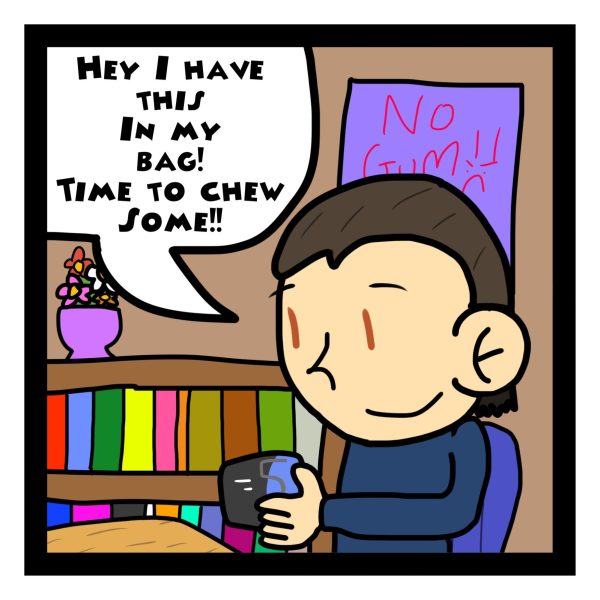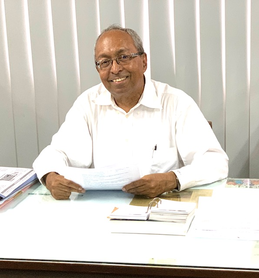For the Legalization of Marijuana

May 30, 2019
As a long time emblem for counter-culture, spiritual enlightenment, and laid-back Long Beach teens, marijuana has become a household name, sitting as one of the most well-known drugs around the world. Amidst its popularity, the stigmas surrounding marijuana trail closely behind it, involving its links to inept youth, its power as a gateway drug, and its danger to the health of the public. While only parts of these stipulations are true, the public often forgets the beneficial qualities marijuana possess, both medicinally and economically, and how much less detrimental it is than its opioid counterparts.
The criminalization of marijuana has lead to unequal incarceration and an increase in stigmas surrounding its users. With the legalization of marijuana, we would begin to reverse the stereotypes and corrupt judicial process that has been built around the legality of the drug and move to create a healthier and safer system surrounding the distribution, possession and use of marijuana.
The Current System of Marijuana Incrimination Is Broken
By legalizing the drug, we will be taking a step forward to reduce racial targeting and create a more proficient policing system. The war on marijuana has heightened racial disadvantages. As of 2010, a black person in America was almost four times more likely to be arrested for marijuana possession than a white person was. Depending on county and state, “blacks are 8, 10, or even 15 times more likely to be arrested,” said the American Civil Liberties Union.
The rates are much lower for White Americans, even with near equal usage rates amongst races. With the usage and sale of marijuana still standing as a crime in America, minorities are at a disadvantage. The criminalization of weed can be used as a gateway for unequal rates of imprisonment amongst races.
Laws don’t serve much purpose if a majority of Americans are not being charged for breaking them. As of 2012, of all federal prison inmates charged for a marijuana-related crime, “59 percent were Hispanic or Latino and 13.9 percent black or African American according to a 2015 Bureau of Justice Statistics analysis,” said in a 2017 article from Newsweek.
Charges are not taken as seriously as they may seem to be. Why are people who are being caught with possession of weed not going to jail? Do police and judges not believe these people should do time? If our own legal system does not push for the incrimination of those who use or possess marijuana, then why should it be illegal?
In 2017, only 92 people were sentenced in the federal system for marijuana possession, out of the near total 20,000 drug convictions, but out of all of the drug possession charges, marijuana possession made up 43 percent of all of the drug possession cases according to Justice Department data. The ACLU has also said that on top of its unfairness, “the war on marijuana is a colossal waste of resources, with states spending billions of dollars and devoting thousands of hours of police work to it.”
Illegal Drug Cartel Will Take a Hit
In legalizing marijuana, we see less of a market for external weed purchases. Across America, legislators have already been making the push towards legalization. So far, it is legal for adults over 21 in 10 states and is medically legal in 33. The legal marijuana industry has grown 74 percent in 2014 to $2.7 billion, says ArcView (a cannabis investment and research firm).
“Coinciding with legalization, violence has decreased in Mexico. Homicides hit a high in 2011, with Mexican police departments reporting almost 23,000 murders. Last year, they reported 15,649,” said a 2015 Times article on Mexican drug cartels.
With the legalization of marijuana, the need for external purchases of the drug may decrease, and while that could pose a threat to America’s streets, it could still hinder illegal drug cartel in surrounding countries and save thousands of lives in the process.
What’s the Real Harm in Weed?
A drug like marijuana is significantly less harmful than most drugs available on the market both legally and illegally. Marijuana, and more specifically its component CBD, is used to treat pain for millions of patients in a America, and a wide-ranging survey done in California has shown that 92 percent of users can attest to marijuana working.
While standing as a fact widely recognized by most of the public, many still ignore that while marijuana related deaths occur, it is impossible to overdose on it. This makes it non-lethal in respect to its chemical composition.
Pharmaceuticals are allowed to profit off of marijuana while it remains illegal and criminalized for the rest of Americans. According to the CDC, 46 people die every day from overdoses involving prescription opioids. In 2017, the CDC recorded that prescription opioids played a part in more than 35 percent of all opioid overdose deaths.
While they profit off of opioids that cause tens of thousands of overdoses a year, marijuana remains illegal and criminalized. It’s unfair to incarcerate Americans for a near harmless drug when prescriptions have caused the population far more harm.
Aside from other drugs, many legal substances are still recorded to be more deadly than marijuana by large margins. Alcohol, for example, has caused more deaths, more violence, and more overall destruction in America than marijuana ever has, yet it’s still legally sold for profit. The National Council on Alcoholism and Drug Dependence reported that alcohol stands as a factor in 40 percent of all violent crimes in the United States. This includes 37 percent of rapes and 27 percent of aggravated assaults.
A 2015 article from the New York Times compared the impacts of marijuana vs alcohol from a pediatricians standpoint. Out of all college students who have been under the influence of alcohol each year: about 600,000 are injured, almost 700,000 are assaulted, almost 100,000 are sexually assaulted, about 400,000 have unprotected sex, 100,000 are too drunk to know if they consented, and more than 1,800 die. “The numbers for pot aren’t even in the same league,” said the article.
Legalization Will Reduce Stigmas and Help Drug Users.
When we stop labeling marijuana users, and more specifically chronic users, as criminals, we create a country where recovery and life after abuse is possible. The decriminalization aspect of making marijuana legal will give people lives after chronic use, and while an excess use of marijuana may not necessarily affect users health, abuse is abuse.
Drug abuse, including the abuse of marijuana, is a mental illness, according to the National Institute of Drug Abuse. Treating people who have chronic and problematic usage of a drug as criminals does nothing for them. With the reform of criminalization laws of marijuana, people can get the help they need.
“Even for individuals who are never incarcerated, collateral consequences that flow from arrests and convictions—such as lost jobs, ineligibility for public housing, suspended driver’s licenses, and restrictions on access to federal student loans—can significantly derail lives. “A ‘criminal history’ built on minor marijuana convictions can categorize defendants as ‘career criminals’ for sentencing purposes in subsequent cases, thereby triggering harsh mandatory sentences,” said the ACLU.
Currently, users of marijuana who were charged with possession still suffer from their track record. The Drug Policy Alliance Headquarters said the “number of students who have lost federal financial aid eligibility because of a drug conviction is more than 200,000.”
How can we expect people to recover and move on when we label them as criminals and continue to hold their past against them?
Addiction is tricky, but with any addictive substance the risk of it happening is always there. In legalizing weed, more people would be welcomed to speak more freely about marijuana usage and get help in the case of addiction. Countries around the world have tested the legalization waters by first decriminalizing drugs, and they have already begun to see success. Portugal has adopted the decriminalization of drugs in their judiciary system: “It’s cheaper to treat people than to incarcerate them,” says sociologist Nuno Capaz.
“If I come across someone who wants my help, I’m in a much better position to provide it than a judge would ever be. Simple as that.” Capaz’s team of 10 counselors handles all of Lisbon’s roughly 2,500 drug cases a year. That’s a 75 percent drop since the 90’s.
Psychologists, therapists, recovery centers and more would be provided for people who suffer from marijuana abuse. They will be able to recover and move on instead of doing their time and continue on a possible path of destruction.














